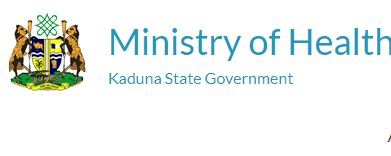The Kaduna State Ministry of Health is partnering with a non-governmental organisation, Sightsavers, to train surgeons on hydrocele management, a common manifestation of lymphatic filariasis.
A hydrocele is a swelling in the scrotum caused by fluid around the testicle, often painless but uncomfortable.
Lymphatic filariasis is a parasitic disease caused by thread-like worms transmitted through repeated bites from infected mosquitoes.
A urology expert, Prof. Nuhu Dagu of the University of Jos, told journalists that the training is aimed at standardising hydrocele surgery in line with the World Health Organisation (WHO) guidelines for improved patient outcomes.
He said that although many doctors had experience with the surgery, the training would expose them to updated WHO techniques and ensure consistent, high-quality surgical results across health facilities.
Prof. Dagu explained that the training covered theoretical sessions, practical work on mannequins, and live surgeries.
He described hydrocele as a fluid collection around the male testis, often caused by lymphatic filariasis, stressing that mass drug administration remains key to prevention and control.
Senior Programme Officer of Sightsavers in Kaduna, Tabitha Kane, said the initiative is in support of the health system in the state to provide WHO-approved care for neglected tropical diseases.
Read Also:
- Federal Ministry of Health launches “Honor Campaign” to celebrate Nigeria’s medical pioneers
- Health ministry debunks exclusion of North-West patients from dialysis subsidy
- Health Ministry launches initiative to tap into global herbal market
She said 12 surgeons were being trained, including eight from Kaduna State and others from Kogi State.
According to her, nationally, over 100 surgeons would be trained under the programme.
Kane advised men with symptoms to seek medical care early to avoid complications, including possible long-term disability.
Mobility management officer for NTDs, Sani Abdullahi, said Kaduna State had been partnering with Sightsavers since 2019 to provide free hydrocele surgeries.
He said about 2,000 patients had benefited since 2019, adding that 18 local government areas were endemic for lymphatic filariasis, though only three still received preventive chemotherapy treatments.
Abdullahi said the training introduced new WHO-endorsed surgical techniques and described the initiative as a major boost to case management and an asset to the state’s health services.
He stated that the state aims to eliminate neglected tropical diseases by 2030, urging the residents in endemic communities to embrace preventive drugs during mass administration campaigns.
The official stressed that hydrocele surgeries under the programme were free for patients, ensuring access for men in need across affected local government areas.






